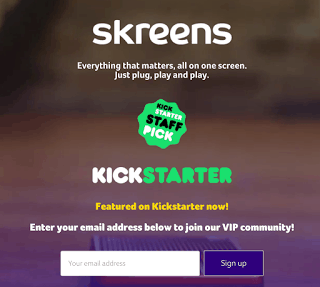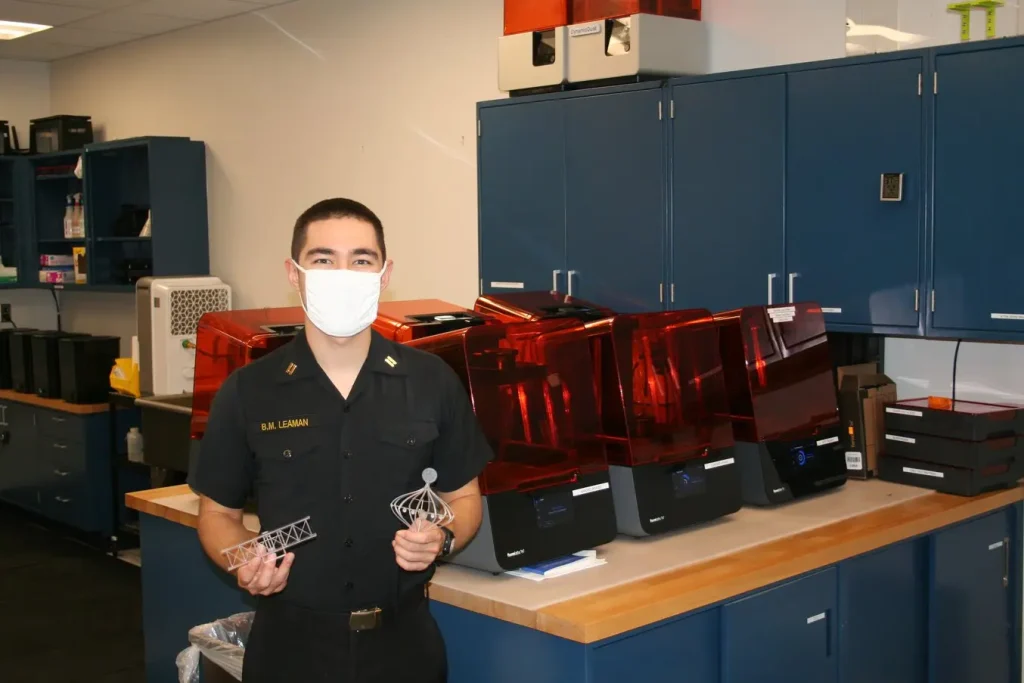By Patrick Rafter
(Principal and Co-Founder, Rafter Communications, and longtime MassTLC
Ambassador, Blogger, @prafter
 |
| Benjamin Cavallari (white shirt) shares his crowdfunding tips |
Surprisingly, the “Crowdfunding
for Startups” unConference15 session was convened by someone who isn’t your
typical startup CEO. In fact, Jay
Donohue, President of Boston-based Global Office Link launched his company more than
21 years ago to assist companies with their real estate needs. In that time, Jay
and his partner Ralph Maffe have completed well over $1 billion in real estate
transactions. Beyond the duo’s 50+ yrs. of relevant experience, they’ve also
developed and patented some very powerful online tools that help clients get
the most from the Web and save millions of dollars.
for Startups” unConference15 session was convened by someone who isn’t your
typical startup CEO. In fact, Jay
Donohue, President of Boston-based Global Office Link launched his company more than
21 years ago to assist companies with their real estate needs. In that time, Jay
and his partner Ralph Maffe have completed well over $1 billion in real estate
transactions. Beyond the duo’s 50+ yrs. of relevant experience, they’ve also
developed and patented some very powerful online tools that help clients get
the most from the Web and save millions of dollars.
As Jay’s exploring how
crowdfunding might fit into real estate, Jay hosted a session of circa 25
participants, who had varying knowledge of/experience with crowdfunding.
crowdfunding might fit into real estate, Jay hosted a session of circa 25
participants, who had varying knowledge of/experience with crowdfunding.
Many of the session members
were startup execs interested in learning if/how crowdfunding can be an
effective funding alternative to maxing out their credit cards, tapping friends
and family (what I call the MCI round), incubators, angel investors, or god
forbid— venture capital.
were startup execs interested in learning if/how crowdfunding can be an
effective funding alternative to maxing out their credit cards, tapping friends
and family (what I call the MCI round), incubators, angel investors, or god
forbid— venture capital.
The session was highly
interactive, informative and the participants: surprisingly honest. Once again,
the unConference proved itself a unique gathering where attendees are open and
giving, not secretive, nor overt self-promoters.
interactive, informative and the participants: surprisingly honest. Once again,
the unConference proved itself a unique gathering where attendees are open and
giving, not secretive, nor overt self-promoters.
The early conversation centered
on how crowdfunding became a more viable funding choice following the passage
of the 2012 Jumpstart
Our Business Startups (JOBS)
Act — bipartisan legislation intended to
relax securities/other regulations restricting how startups raise money and
which set federal guidelines for equity crowdfunding.
on how crowdfunding became a more viable funding choice following the passage
of the 2012 Jumpstart
Our Business Startups (JOBS)
Act — bipartisan legislation intended to
relax securities/other regulations restricting how startups raise money and
which set federal guidelines for equity crowdfunding.
As people in the session
hailed from across New England and other countries, there was also some
discussion of whether/how individual states are friendly to startups and
supportive of crowdfunding. With most of the audience from the Bay State, there
was a discussion of the Massachusetts
Crowdfunding Exemption, through which Mass-based business entities may raise
up to $1 million in a twelve-month period, and up to $2 million if the company
has audited financial statements.
hailed from across New England and other countries, there was also some
discussion of whether/how individual states are friendly to startups and
supportive of crowdfunding. With most of the audience from the Bay State, there
was a discussion of the Massachusetts
Crowdfunding Exemption, through which Mass-based business entities may raise
up to $1 million in a twelve-month period, and up to $2 million if the company
has audited financial statements.
While our gathering was comprised of lots of smart and
successful professionals, three stood out for me:
successful professionals, three stood out for me:
Benjamin’s a
producer at Cambridge-based Skreens Technology; a startup that’s building
technology that “enables users to composite and
blend their various HDMI inputs to create more useful layouts for both work and
for play.”
producer at Cambridge-based Skreens Technology; a startup that’s building
technology that “enables users to composite and
blend their various HDMI inputs to create more useful layouts for both work and
for play.”
My
translation of Skreens’ techy-sounding value prop description: “Lets you watch, game, browse, Tweet, and
more ALL at the same time on a single computer screen.” Through an insight-full description of how they’re doing it, Benjamin
detailed how Skreens is running a Kickstarter campaign right now (which launched
on September 22, 2015).
translation of Skreens’ techy-sounding value prop description: “Lets you watch, game, browse, Tweet, and
more ALL at the same time on a single computer screen.” Through an insight-full description of how they’re doing it, Benjamin
detailed how Skreens is running a Kickstarter campaign right now (which launched
on September 22, 2015).
Five of Cavallari’s Kickstarter Tips:
1.
Build up an installed base of
prospective customers before launching your campaign
Skreens spent a year
exhibiting at conferences including the PAX events, Streaming Media East,
NAB/Vegas and TwitchCON, which helped them gather a database of 5,000 names.
Build up an installed base of
prospective customers before launching your campaign
Skreens spent a year
exhibiting at conferences including the PAX events, Streaming Media East,
NAB/Vegas and TwitchCON, which helped them gather a database of 5,000 names.
2.
Set an artificially low public goal that
can be reached in 24 hours
Skreens’ Kickstarter
first showed a $25,000 goal – far less than what they really wanted or needed
to raise. As of this writing, with 3 days to go till the close of their
campaign, Skreens has raised almost $402,000 through the support of more than
1100 backers.
Set an artificially low public goal that
can be reached in 24 hours
Skreens’ Kickstarter
first showed a $25,000 goal – far less than what they really wanted or needed
to raise. As of this writing, with 3 days to go till the close of their
campaign, Skreens has raised almost $402,000 through the support of more than
1100 backers.
3.
Have an internal staffer who is
dedicated full-time to managing the Kickstarter campaign
Crowdfunding compresses lots of effort into a very short time. Success requires
someone who eats, sleeps and breathes the campaign.
Have an internal staffer who is
dedicated full-time to managing the Kickstarter campaign
Crowdfunding compresses lots of effort into a very short time. Success requires
someone who eats, sleeps and breathes the campaign.
4.
Hire a creative PR resource to pitch
your story to media and bloggers
As a reformed PR guy
myself, Benjamin was preachin’ to the choir!
Hire a creative PR resource to pitch
your story to media and bloggers
As a reformed PR guy
myself, Benjamin was preachin’ to the choir!
5. Produce
and Post a Killer Video
If a picture’s worth a
thousand words, what’s the value of a well done online video? Whether you watch
it on their Kickstarter page or on YouTube, Skreens put together an effective
video that gives complete overview in 2:41 minutes, with a tagline of “Skreens:
Everything you want on one display.”
and Post a Killer Video
If a picture’s worth a
thousand words, what’s the value of a well done online video? Whether you watch
it on their Kickstarter page or on YouTube, Skreens put together an effective
video that gives complete overview in 2:41 minutes, with a tagline of “Skreens:
Everything you want on one display.”
When Benjamin
said Skreens was “just plug, play, and play” – he got this ADD-crazed multi-tasker
chomping at the bit!
said Skreens was “just plug, play, and play” – he got this ADD-crazed multi-tasker
chomping at the bit!
A self-dubbed
creative “Brain for Hire” through her company MESLIN Innovation Consulting,
Marie Breslin is a newly arrived Program Manager at The
Capital Network (TCN), which
has played a vital role in Boston’s innovation ecosystem, by delivering
educational programs that help entrepreneurs raise funds for their early stage
startups. @TCNupdate has curated a network connecting New England’s premier
entrepreneurs, angels, VCs, corporate/strategic investors, government agencies,
educational institutions, and area-expert service providers.
creative “Brain for Hire” through her company MESLIN Innovation Consulting,
Marie Breslin is a newly arrived Program Manager at The
Capital Network (TCN), which
has played a vital role in Boston’s innovation ecosystem, by delivering
educational programs that help entrepreneurs raise funds for their early stage
startups. @TCNupdate has curated a network connecting New England’s premier
entrepreneurs, angels, VCs, corporate/strategic investors, government agencies,
educational institutions, and area-expert service providers.
At the
#unConf15 crowdfunding session, Marie described some of TCN’s 40+ programs a
year, which include events like breakfast roundtables, deep-dive topic lunches,
mentoring and networking receptions.
#unConf15 crowdfunding session, Marie described some of TCN’s 40+ programs a
year, which include events like breakfast roundtables, deep-dive topic lunches,
mentoring and networking receptions.
Confused about
valuations? Cap tables? Dilution? —The TCN’s 4-month
Accelerated Education Program is a great way to come up to speed on
the fundamentals of all things funding.
valuations? Cap tables? Dilution? —The TCN’s 4-month
Accelerated Education Program is a great way to come up to speed on
the fundamentals of all things funding.
So if you’re
with a startup seeking between $50K and $4M in seed, angel or venture capital
investment, be sure to check out The Capital Network at
http://www.thecapitalnetwork.org
with a startup seeking between $50K and $4M in seed, angel or venture capital
investment, be sure to check out The Capital Network at
http://www.thecapitalnetwork.org
Andy Singleton
is founder and CEO of Assembla, a hot Waltham SaaS company that
provides workspaces for distributed software teams.
is founder and CEO of Assembla, a hot Waltham SaaS company that
provides workspaces for distributed software teams.
Andy shared his personal story of turning down $10,000 from an investor in the early days @assembla,
thinking (at the time): “Why would I want to take that?”
At the 2015 unConference,
Andy said he’d love to get $10,000 from that investor today… The
investor? None other than Paul Graham (aka @paulg), co-founder of Y Combinator– the massively successful startup
incubator that’s funded over 800 startups, including Dropbox, Airbnb, Stripe,
and Reddit.
Andy said he’d love to get $10,000 from that investor today… The
investor? None other than Paul Graham (aka @paulg), co-founder of Y Combinator– the massively successful startup
incubator that’s funded over 800 startups, including Dropbox, Airbnb, Stripe,
and Reddit.
Andy’s story brought to mind Bessemer
Venture Partners’ fascinating “Anti-Portfolio” – a summary of investments that Bessemer passed
on (including Apple, eBay, Facebook,
and Google to name a few). This webpage includes excerpts from partners’
comments made at the time they declined. It also includes this honest yet
amusing line: “if we had invested in any of these companies, we might not still
be working.”
Venture Partners’ fascinating “Anti-Portfolio” – a summary of investments that Bessemer passed
on (including Apple, eBay, Facebook,
and Google to name a few). This webpage includes excerpts from partners’
comments made at the time they declined. It also includes this honest yet
amusing line: “if we had invested in any of these companies, we might not still
be working.”
If Kickstarter or Indiegogo aren’t a fit,
you’ll find a helpful round-up in “Crowdfunding
for Startups: 10 Kickstarter Alternatives,” an
August 2015 BusinessNewsDaily article
written by Nicole Fallon (@nicolefallon90).
you’ll find a helpful round-up in “Crowdfunding
for Startups: 10 Kickstarter Alternatives,” an
August 2015 BusinessNewsDaily article
written by Nicole Fallon (@nicolefallon90).
Ultimately, whether a tech entrepreneur gets cash for their startup through
crowdfunding, angels, incubators or venture capital firms, remember Rafter’s
Rule: It’s not how much you take in,
it’s how much you keep!



